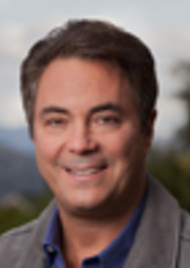By: Clint Wilder

For the past year or so, political junkies like myself have become fascinated by the work of University of California-Berkeley linguistics professor Dr. George Lakoff, who writes and speaks eloquently on what he calls the framing of political issues. A big part of framing is simply the language used to describe and then sell an issue, and Lakoff attributes much of the recent political success of the Republican party to their better job of framing than the Democrats. Support for reducing or eliminating the federal estate tax, for example, rose significantly when GOP tax-cut advocates started referring to it as "the death tax." The time has come to reframe the issue of clean energy. Despite years of technology advances, cost reductions, and large-scale corporate investments, too many people and legislators in the U.S. still view our industry and the energy it produces as "alternative," unreliable, and even a little bit subversive. "In Texas, I've been called a communist for supporting ethanol," says Dr. Max Shauck, director of the Institute for Air Science at Baylor University. "As a former Navy fighter pilot, that really pisses me off." The good news is that a lot of smart, dedicated people are already on the path toward reframing the energy debate. In opinion research conducted last year in Rhode Island, the Clean Energy States Alliance and marketing consultancy SmartPower found that the label of "clean" energy had a much more positive public reception than "green" (too political), "renewable" (too niche), or "alternative" (too much of an implication that its users must adopt a new lifestyle). But even when viewing clean energy as positive for the environment, the public was skeptical of its ability to replace fossil fuels. Coal, oil, and natural gas "make our world work, and there's nothing else to take their place" was the prevailing view, says SmartPower president Brian Keane. Perhaps the biggest framing hurdle that the clean energy industry faces was summed up in one respondent's words: "I just don't think it works." After the initial research, SmartPower ran a public information campaign, including TV ads narrated by actor Peter Gallagher spotlighting renewable-powered houses, hospitals, and factories with the tagline, "Clean energy: It's real. It's here. And it's working." The result? A thousand new customers switched to the local utility's green power option in 100 days, and the number of people who agreed that clean energy is as reliable as fossil fuels jumped from 40% to 51% in the same period. The influential framing themes of reliability and affordability could get a big boost from greater public awareness of one of clean energy's biggest customers: the Department of Defense. Military bases across the U.S. are increasingly turning to renewables, distributed generation, and co-generation under a directive to have adequate plans for on-site power in the event of transmission disruption due to natural disaster, grid breakdown, or terrorist attack. The U.S. Air Force is by far the largest purchaser of green power in the U.S. (more than 321,000 megawatt-hours annually), and one base, Dyess AFB in Texas, is the nation's largest single-site wind power buyer. The military's embrace of clean energy speaks to possibly the biggest framing issue of all: clean energy and energy efficiency as a matter of national security. This effort has gained a lot of recent momentum, and was the topic of a lively session at the Power-Gen Renewable Energy trade show in Las Vegas earlier this month. Reducing oil consumption to lessen the flow of dollars to hostile nations is by far the most compelling argument here, but the global natural gas market is also increasingly showing the bad earmarks of oil with high prices and geopolitical instability. Framing clean energy in terms of national security is significant because it crosses traditional political lines in a way that arguing for environmental sustainability, unfortunately, does not. The board of oil-use reduction advocacy group Set America Free Coalition (http://www.setamericafree.org), for example, includes members from the conservative Hudson Institute and National Defense Council Foundation as well as the environmentalist Natural Resources Defense Council. "We are fighting a war on terrorism and paying for both sides of the war," says coalition founder Dr. Gal Luft, executive director of the Institute for the Analysis of Global Security and a former colonel in the Israeli army. "We need to change the terms of the energy security debate, and we need conservatives to lead it." George Lakoff could not have framed it better. Wilder is Clean Edge's contributing editor. E-mail him at wilder[at]cleanedge[dot]com.

